Betta fish, also known as Siamese fighting fish, are popular pets are known for their vibrant colors and also feisty personalities. Proper care is crucial to ensure they thrive, and feeding plays a significant role in their health and well-being.
Understanding how much to feed a betta fish can be tricky, but it’s essential for maintaining their vitality and preventing health issues.
Betta Fish Dietary Needs
Natural Diet of Betta Fish
In the wild, betta fish are insectivores. They primarily feast on insects and larvae, which provide the protein and nutrients they need to thrive. This diet is rich in protein, a key component that supports their active lifestyle and vibrant coloration.
Nutritional Requirements
Betta fish require a diet high in protein. They also need fats for energy and small amounts of carbohydrates. Vitamins and minerals are necessary to support their immune system, prevent diseases, and maintain their overall health.
Types of Betta Fish Food
Commercial Pellets and Flakes
Commercial betta food, available in the form of pellets and flakes, is designed to meet the dietary needs of these fish. Pellets are generally preferred over flakes because they are less likely to dissolve in water, reducing the risk of overfeeding and maintaining water quality.
Frozen and Live Food
Betta fish also enjoy frozen and live foods, such as bloodworms, brine shrimp, and daphnia. These foods are excellent sources of protein and can be used to supplement their diet, providing variety and stimulating natural hunting behaviors.
Homemade Betta Food
Some betta enthusiasts opt for homemade food, which can include a mix of protein-rich ingredients such as cooked egg yolk, finely chopped seafood, and vegetables. This approach allows for customization but requires careful preparation to ensure nutritional balance.
How Much to Feed a Betta Fish
General Feeding Guidelines
A general rule of thumb is to feed your betta fish only as much as they can consume in about two minutes. This typically amounts to 2-3 pellets per feeding. For frozen or live foods, a similar volume should be adhered to.
Factors Influencing Feeding Amounts
The amount of food a betta fish needs can vary based on factors such as age, size, and activity level. Younger, growing fish and more active bettas may require slightly more food compared to older or less active individuals.
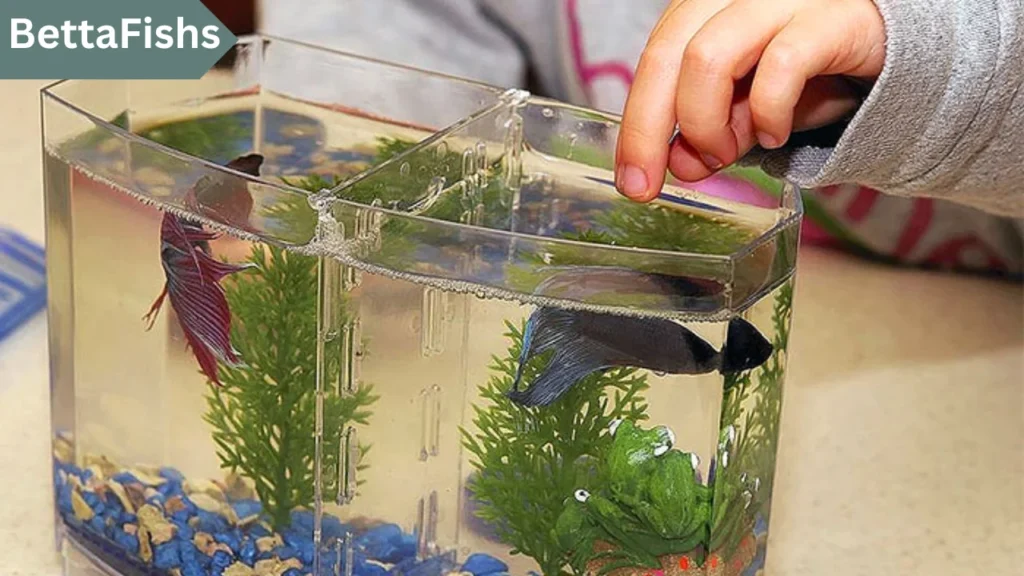
Feeding Frequency
Ideal Feeding Schedule
Most experts recommend feeding betta fish twice a day. This schedule helps to mimic their natural feeding patterns and provides consistent energy throughout the day.
Adjusting Frequency Based on Age and Health
For young betta fry, feeding three to four times a day with smaller portions is ideal. Older or less active bettas might do well with once-a-day feeding or smaller, more frequent meals to prevent obesity.
Signs of Overfeeding
Physical Symptoms in Betta Fish
Overfeeding can cause a betta fish to appear bloated or swollen. You might also notice lethargy or a decrease in activity levels as their body struggles to process the excess food.
Tank Conditions Indicating Overfeeding
Uneaten food can sink to the bottom of the tank, leading to water contamination and promoting the growth of harmful bacteria and algae. Cloudy water and an increase in algae are common signs of overfeeding.
Consequences of Overfeeding
Health Risks for the Fish
Overfeeding can lead to severe health issues, including constipation, swim bladder disease, and fatty liver disease. These conditions can significantly reduce a betta fish’s lifespan.
Impact on Water Quality
Excess food decomposes in the tank, releasing harmful toxins such as ammonia and nitrites. These substances can stress your fish and create an unhealthy living environment, increasing the risk of disease.
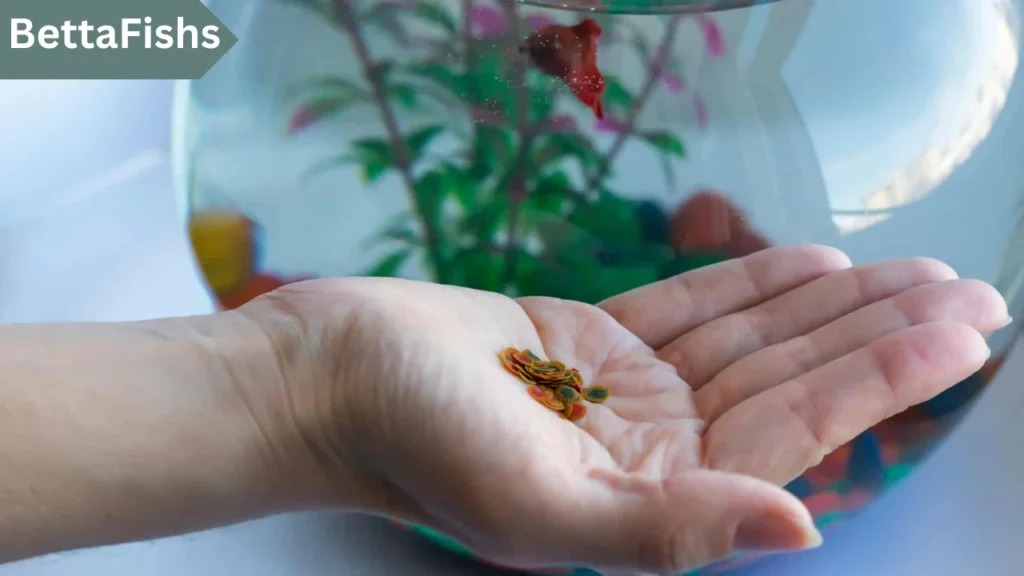
Signs of Underfeeding
Physical Symptoms in Betta Fish
Underfed betta fish may appear thin or emaciated. Their colors may fade, and they might display listlessness or a lack of energy.
Behavioral Changes
A hungry betta fish might become more aggressive or constantly search for food, even after feeding times. They may also display more frequent glass surfing behaviors, where they swim up and down the sides of the tank.
Consequences of Underfeeding
Health Risks for the Fish
Prolonged underfeeding can weaken a betta fish’s immune system, making them more susceptible to infections and diseases. It can also stunt their growth and lead to long-term health complications.
Long-term Effects on Growth and Vitality
Without adequate nutrition, a betta fish will not develop properly, leading to stunted growth and a less vibrant appearance. Their overall vitality and lifespan can be severely affected.
Feeding Tips for Betta Fish
Portion Control
Always measure the amount of food you give your betta to avoid overfeeding. Using a small spoon or your fingers to count pellets can help maintain consistency.
Monitoring Feeding Habits
Keep an eye on how much your betta eats during each feeding session. If they consistently leave food uneaten, consider reducing the portion size.
Adjusting Diet Based on Needs
Adjust your betta’s diet based on their activity level, health, and growth. Introducing a variety of food types can ensure they receive a balanced diet and prevent boredom.
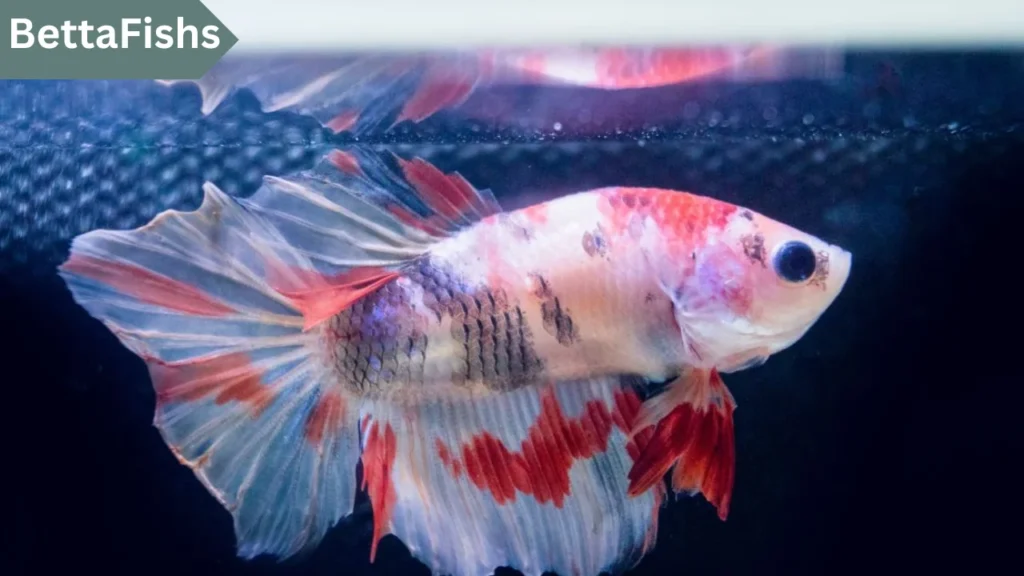
Special Considerations
Feeding Betta Fry
Betta fry require more frequent feedings with very small portions. Foods like infusoria, baby brine shrimp, and finely crushed flakes are ideal for their tiny mouths.
Feeding Sick or Stressed Betta Fish
Sick or stressed bettas may have reduced appetites. Offering smaller, more frequent meals and high-quality food can help them recover faster.
Common Mistakes in Feeding Betta Fish
Over-reliance on One Type of Food
Feeding only pellets or flakes can lead to nutritional deficiencies. Mixing in frozen or live foods ensures a more balanced diet.
Ignoring Dietary Variety
Variety is key to a healthy diet. Including different types of food keeps your betta interested and provides all necessary nutrients.
Misjudging Portion Sizes
It’s easy to overestimate how much food your betta needs. Stick to the general guidelines and adjust based on your fish’s behavior and health.
Creating a Balanced Diet
Combining Different Types of Food
Mix commercial pellets with frozen, live, and occasional homemade food to create a well-rounded diet for your betta.
Importance of Variety and Balance
A varied diet prevents nutritional deficiencies and keeps your betta engaged and healthy. Balance is crucial to avoid overfeeding or underfeeding.
Conclusion
Feeding your betta fish the right amount is essential for their health and well-being. By understanding their dietary needs and monitoring their feeding habits, you can ensure they live a long, vibrant life. Remember to provide a balanced diet, avoid common mistakes, and adjust feeding based on your betta’s specific requirements. Happy feeding!
FAQs
How often should I feed my betta fish?
Feed your betta twice a day, with enough food to be consumed within two minutes.
Can I feed my betta fish human food?
It’s best to stick to foods formulated for bettas. Some human foods can be toxic or lack necessary nutrients.
What should I do if my betta fish is not eating?
Check water conditions and ensure the food is fresh. Try offering a variety of foods to stimulate appetite.
How do I know if my betta fish is getting enough food?
A healthy betta will be active and have vibrant colors. Monitor their behavior and adjust portions if they appear bloated or lethargic.
Is it okay to skip a feeding day?
Occasionally skipping a day can be beneficial, allowing your betta’s digestive system to rest


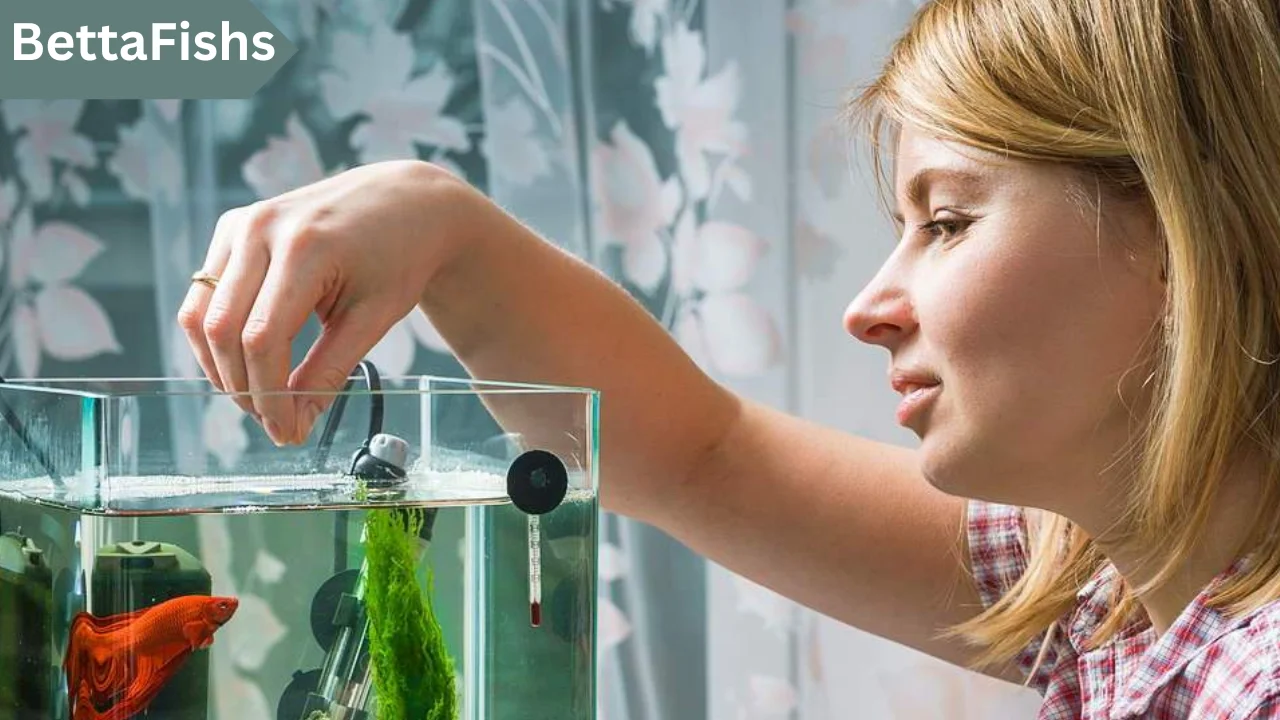
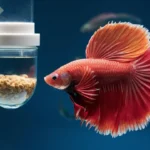
7 Comments
Leave a Reply7 Pings & Trackbacks
Pingback:how to feed betta fish while on vacation?
Pingback:How Often Should You Feed Betta Fish?
Pingback:How often to feed Betta fish pellets?
Pingback:How long does a Betta fish live without food?
Pingback:How Often Should You Feed a Betta Fish Bloodworms?
Pingback:Good food for Betta fish
Pingback:Betta Fish Vacation Food